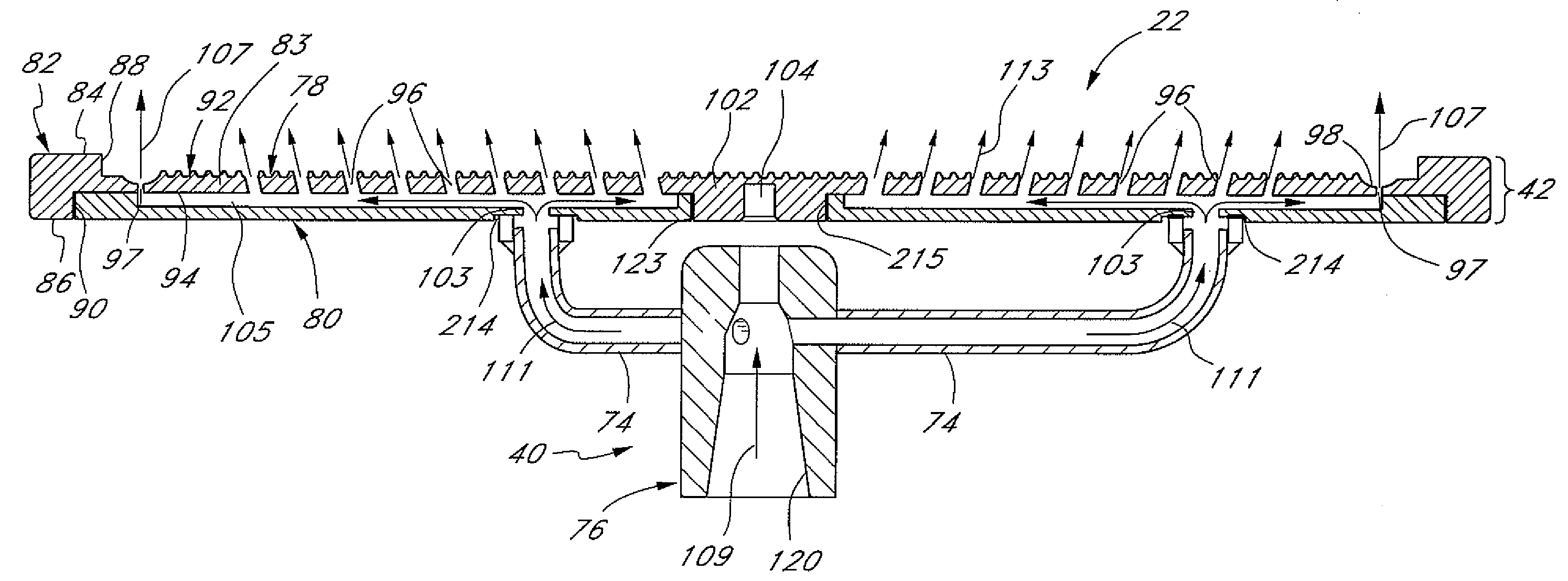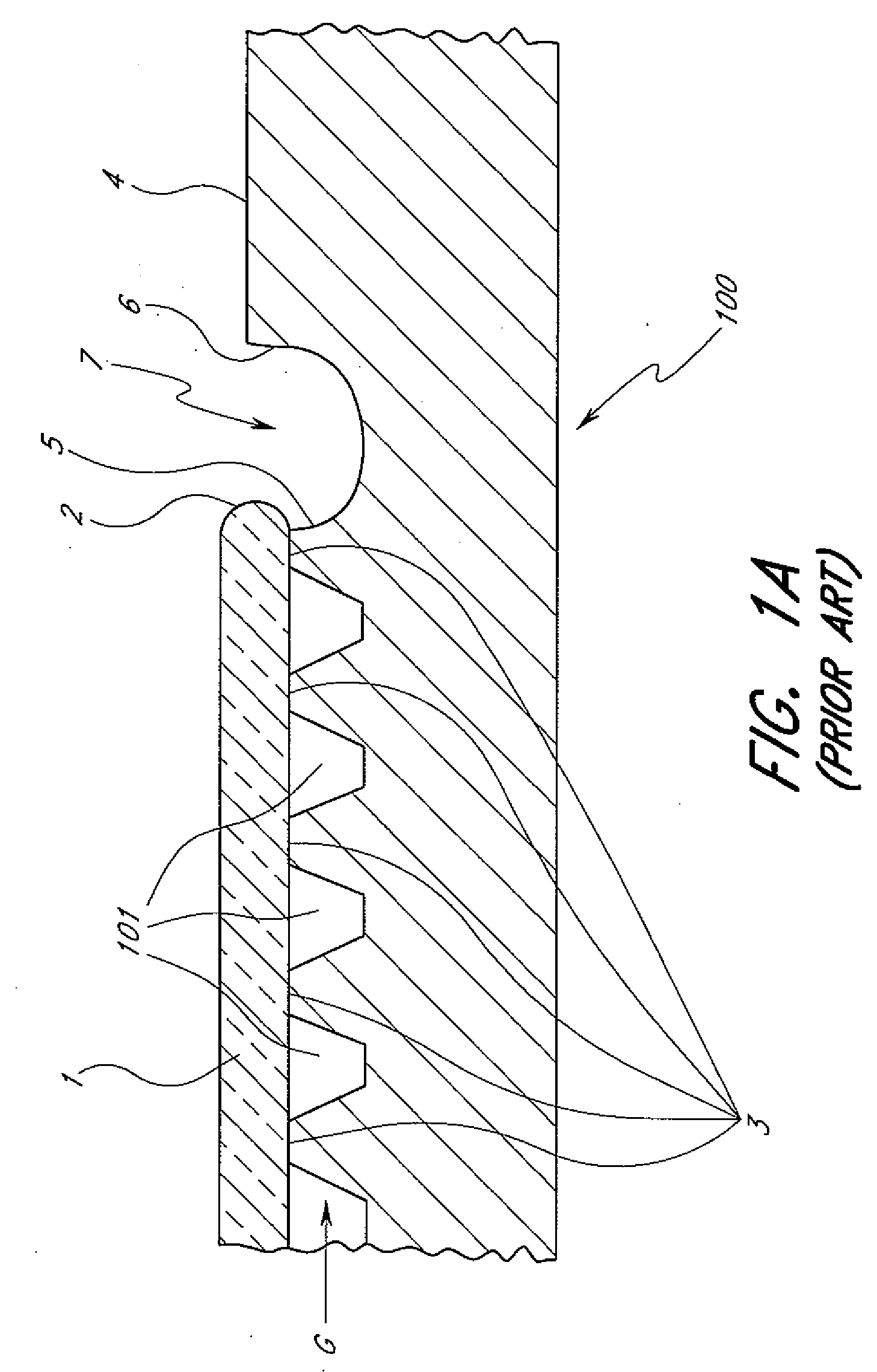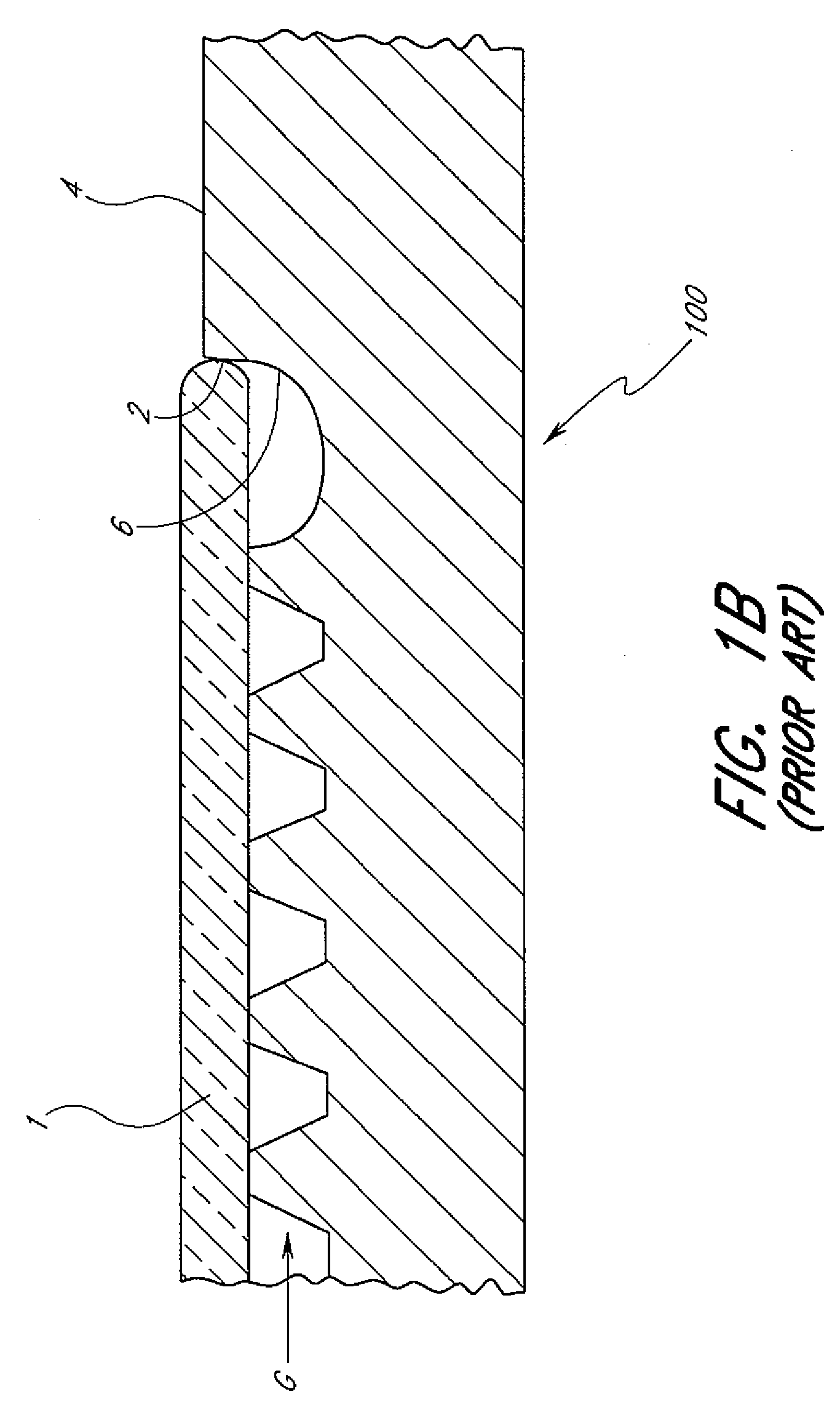Method of supporting a substrate in a gas cushion susceptor system
- Summary
- Abstract
- Description
- Claims
- Application Information
AI Technical Summary
Benefits of technology
Problems solved by technology
Method used
Image
Examples
Embodiment Construction
[0040] As noted above, there are significant problems associated with the transfer of substrates onto and from conventional substrate holders. In dropping substrates onto the holders, substrate slide makes it difficult to accurately place the substrate in the center of the holder with good reproducibility. When the holder is heated, particularly when the holder is a heated susceptor in a cold-wall reactor, a substrate dropped onto the holder also tends to curl due to transitory temperature differentials within the substrate. Curl can cause “jump” and move the substrate from its desired position. Due to unpredictable placement of the substrate upon the susceptor, it is difficult to maintain a uniform substrate temperature, especially for processes within the kinetic regime.
[0041] Furthermore, curl can cause scratching of the wafer-handling end effector and dropping of the substrate, leading to particulate contamination. Also, in removing the wafer from the holder, the wafer tends to...
PUM
| Property | Measurement | Unit |
|---|---|---|
| Temperature | aaaaa | aaaaa |
| Temperature | aaaaa | aaaaa |
| Temperature | aaaaa | aaaaa |
Abstract
Description
Claims
Application Information
 Login to View More
Login to View More - R&D
- Intellectual Property
- Life Sciences
- Materials
- Tech Scout
- Unparalleled Data Quality
- Higher Quality Content
- 60% Fewer Hallucinations
Browse by: Latest US Patents, China's latest patents, Technical Efficacy Thesaurus, Application Domain, Technology Topic, Popular Technical Reports.
© 2025 PatSnap. All rights reserved.Legal|Privacy policy|Modern Slavery Act Transparency Statement|Sitemap|About US| Contact US: help@patsnap.com



